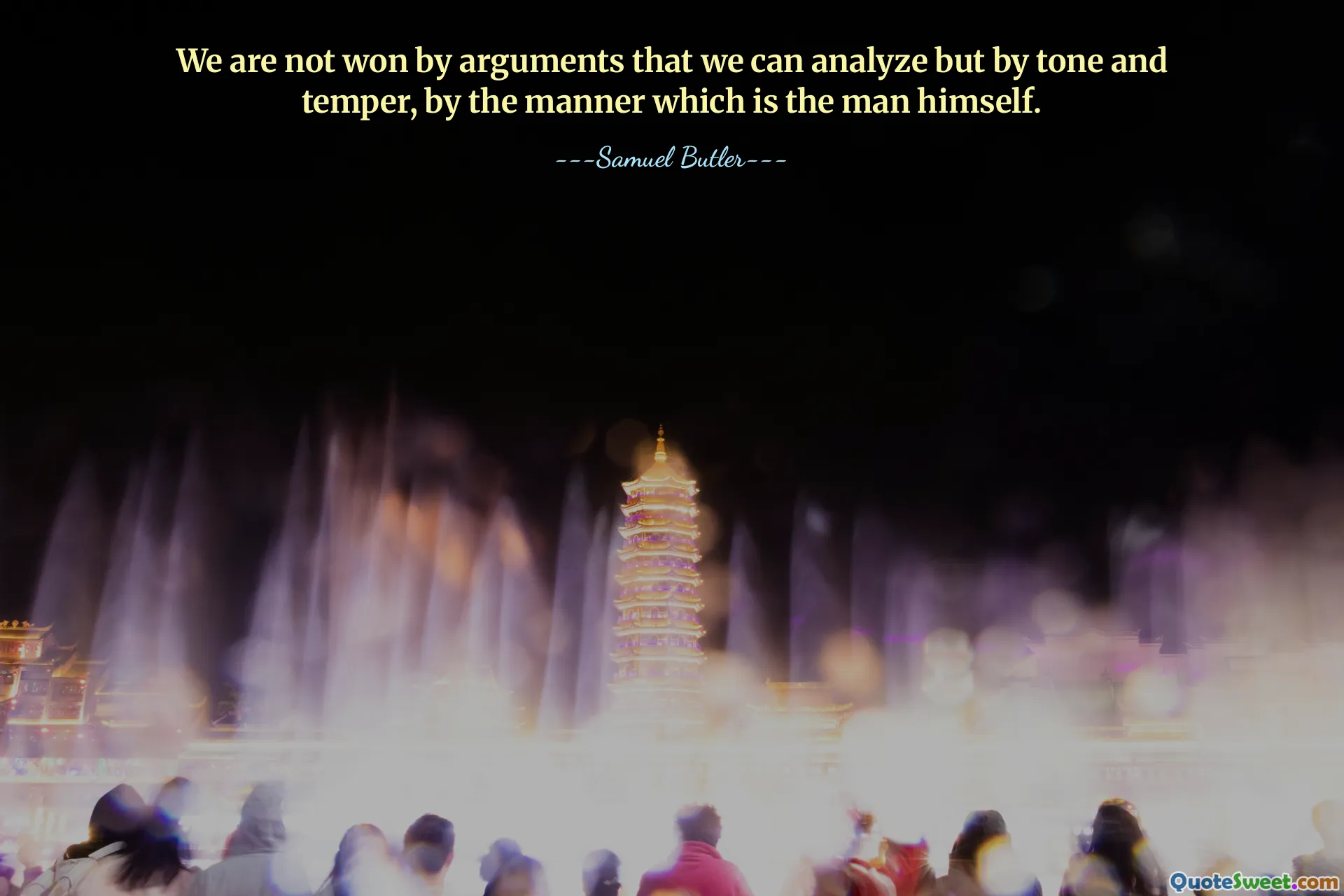
We are not won by arguments that we can analyze but by tone and temper, by the manner which is the man himself.
This quote emphasizes the profound impact of demeanor and presentation in human interactions over merely logical arguments. It suggests that persuasion and influence hinge less on the content of our arguments and more on how we communicate them. The tone and temper—how one expresses oneself—carve an indelible impression that often overshadows the facts or logic presented. In many social, political, or personal situations, individuals are swayed not just by the strength of arguments, but by the unmistakable qualities reflected through mannerisms and emotional tone. This insight reminds us that authenticity, confidence, and emotional intelligence are key elements in effectively conveying messages and gaining trust. The quote also hints at the genuine nature of character; the way a person conducts themselves in speech and demeanor reveals their true self. When we consider leadership, persuasion, or even everyday conversations, it becomes evident that our attitude and emotional state shape perceptions and responses more than words alone. Ultimately, it is the human element—our tone, temper, and manner—that creates authentic connection and influence, making the difference between superficial persuasion and meaningful impact.









